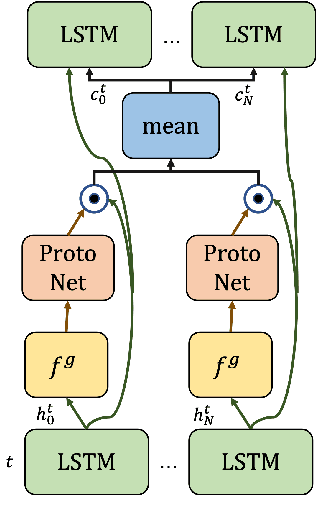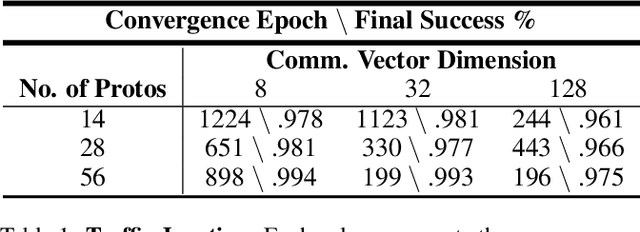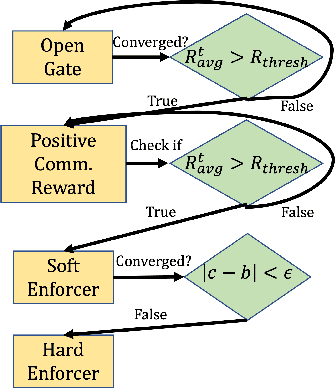The Enforcers: Consistent Sparse-Discrete Methods for Constraining Informative Emergent Communication
Paper and Code
Jan 19, 2022



Communication enables agents to cooperate to achieve their goals. Learning when to communicate, i.e. sparse communication, is particularly important where bandwidth is limited, in situations where agents interact with humans, in partially observable scenarios where agents must convey information unavailable to others, and in non-cooperative scenarios where agents may hide information to gain a competitive advantage. Recent work in learning sparse communication, however, suffers from high variance training where, the price of decreasing communication is a decrease in reward, particularly in cooperative tasks. Sparse communications are necessary to match agent communication to limited human bandwidth. Humans additionally communicate via discrete linguistic tokens, previously shown to decrease task performance when compared to continuous communication vectors. This research addresses the above issues by limiting the loss in reward of decreasing communication and eliminating the penalty for discretization. In this work, we successfully constrain training using a learned gate to regulate when to communicate while using discrete prototypes that reflect what to communicate for cooperative tasks with partial observability. We provide two types of "Enforcers" for hard and soft budget constraints and present results of communication under different budgets. We show that our method satisfies constraints while yielding the same performance as comparable, unconstrained methods.
 Add to Chrome
Add to Chrome Add to Firefox
Add to Firefox Add to Edge
Add to Edge